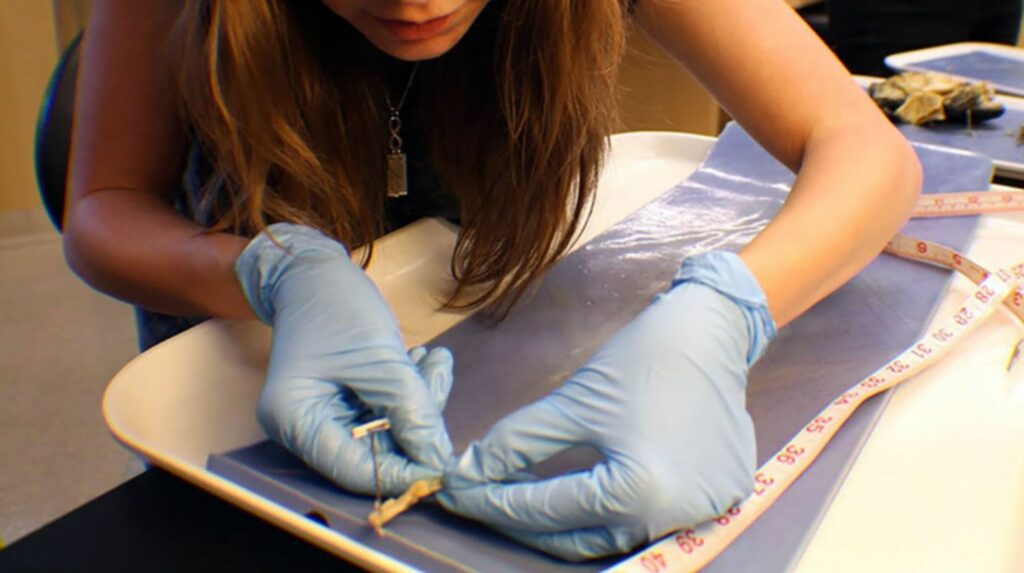And why ‘women are better able to survive during periods of stress’
A new study has revealed significant variation in the anatomy of the human digestive system, with pronounced differences possible between healthy individuals.
These findings are significant as they offer insight into the potential impact of the digestive tract’s anatomical structure on human health, as well as opportunities for medical diagnoses and understanding of the gut’s microbial ecosystem.
Uncovering the Extent of Variability in Human Gut Anatomy
“There was research more than a century ago that found variability in the relative lengths of human intestines, but this area has largely been ignored since then,” comments co-first author Amanda Hale from North Carolina State University.
When they began “exploring this issue,” they “were astonished at the extent of the variability” they discovered.
“If you’re talking to four different people, odds are good that all of them have different guts, in terms of the relative sizes of the organs that make up that system,” explains corresponding author Erin McKenney. “For example, the cecum is an organ that’s found at the nexus of the large and small intestine. One person may have a cecum that is only a few centimeters long, while another may have a cecum the size of a coin purse. And we found similar variability for many digestive organs.”
Women Found to Have Longer Small Intestines Than Men
Another remarkable finding from the study is that women tend to possess longer small intestines compared to men.
“Because having a longer small intestine helps you extract nutrients from your diet, this finding supports the canalization hypothesis, which posits that women are better able to survive during periods of stress,” adds Hale.
“Given that there is more variation in human gut anatomy than we thought, this could inform our understanding of what is driving a range of health-related issues and how we treat them,” points out McKenney. “Basically, now that we know this variability exists, it raises a number of research questions that need to be explored.”

As part of their research, they analyzed the digestive systems of 45 individuals who had generously donated their bodies to the Anatomical Gifts Program at Duke University School of Medicine.
Not only did this investigation reveal previously unknown differences in human anatomy, but it also underscored the significance of educating medical students about anatomical variations.
“It’s particularly important in medical training,” adds co-author Roxanne Larsen, “because if students are only learning about a ‘normal’ or ‘average’ anatomy, that means they are not going to be familiar with the scope of human variation.”
“It’s increasingly clear that the medical field is moving toward individualized medicine to improve patient outcomes and overall health and well-being. Garnering experience in understanding anatomical variation can play a critical role in helping future doctors understand the importance of individualized medicine.”
“We’re excited about this discovery and future directions for the work,” McKenney adds. “It underscores just how little we know about our own bodies.”
Image Credit: Getty
